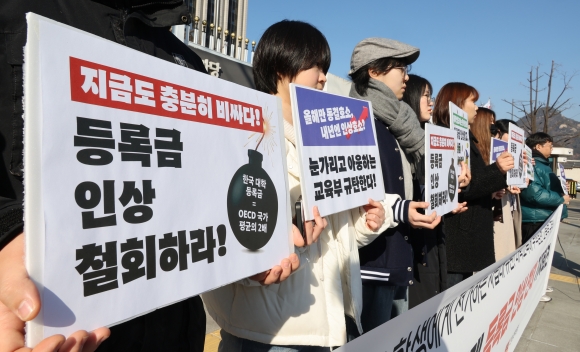
The majority of universities in Korea have recently decided to increase tuition fees, breaking the long-standing trend of a tuition freeze. While it is widely known that many universities have been suffering from financial difficulties due to the prolonged tuition freeze policy, many are expressing concerns about the additional financial burden on university students.
According to the Korean Association of Private University Presidents (KPU), it is confirmed that 124 universities have increased tuition fees for the 2025 spring semester as of Feb. 11. This accounts for 65.3% of the 190 universities in Korea. More specifically, 75.5% of private universities and 25.7% of public universities have increased tuition fees this year.
The recent tuition fee increase has gained significant public attention mainly because it has considerably shifted the trend in tuition fees throughout the nation. While some universities have adjusted their tuition fees in the past years, a change of such a scale was unprecedented in over a decade. The rate of tuition fee increases is restricted by law in Korea, not to exceed 1.5 times the inflation rate. Universities that increase tuition fees also face a penalty, which restricts the students from getting financial support of Type II national scholarships. Previously, many universities maintained the tuition fee at the same level since the introduction of the tuition freeze policy in 2009, based on a judgment that they could benefit more from the Type II national scholarship than tuition fee increase.
However, due to the drastic increase in the inflation rate in Korea, the rate of tuition fee increase universities could apply has also been revised. The upper limit of increasing rate this year is 5.49% and universities are evaluating tuition fee increases to be more beneficial than Type II national scholarships. Moreover, the recent shift of trend has added momentum for universities to raise tuition fees. Since several universities are increasing tuition fees, it is less of a burden for a university to take a similar action.
The Ministry of Education has announced that they will broaden the national scholarship program to lessen the burden of the recent tuition fee increase on students. Further discussion on the issue indicates that the prolonged tuition freeze policy has been shown to entail limitations, and more fundamental aid from the government, such as increasing financial support from the government to universities, is needed.


